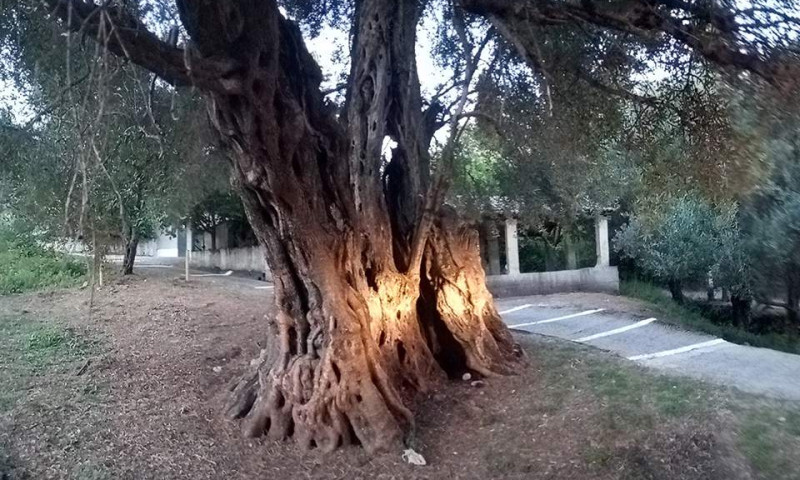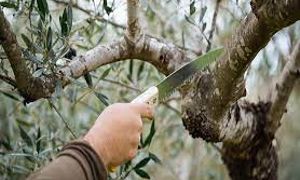One of the oldest olive trees in the world in Corfu!

Strogili
26 Oct 2019
/ 13:40
CORFU. Research by German scientists revealed that there is an olive tree in Strogili approximately 11 centuries old - making it one of the oldest in the world.
The roots of the olive tree 'Evdokia' in Strogili, Corfu are approximately 11 centuries old according to research done by a team of German scientists from the Institute of Forest Botany and Forest Zoology - Faculty of Environmental Sciences Dresden University of Technology (TU Dresden) led by Professor Andrea Roloff.
The Old Lady of Corfu, which has lived through hundreds of years of cultural changes and influences, hides thousands of secrets in its roots from the Venetian conquerors to today's illegal loggers who have cut down hundreds of the island's olive trees.
Just a few metres from the olive tree - one of the oldest in the world - can be found what was the home of one of the most important personalities of the Ionian School, the poet Gerasimos Markoras.

One of the founders of the Hellenic Union of Heptanisians (EEE) and present Managing Director of the the Union's cultural magazine, myEptanisa.gr, Eleni Konofaou told the Athens-Macedonian News Agency that research into the age of 'Evdokia' began on the recommendation of biologist Eleni Louka, a member of EEE who comes from Strogili, where the centuries-old tree is located.
In the summer of 2014 the team from Dresden University of Technology visited Strogili and, in collaboration with the Strogili local association and biologist Eleni Louka, began their reserach into the age of 'Evdokia'.
The results of the research showed that the olive tree is approximately 1,086 years old and was planted in approximately 928 AD.

'Evdokia' is one of the ten oldest and largest olive trees in Europe - and consequently the world - and compares with the other well-known olive trees in Greece, Italy, Spain, Portugal and Montenegro, for which research has not been completed and so their ages are still hypothetical.
Source: APE-MPE
The Old Lady of Corfu, which has lived through hundreds of years of cultural changes and influences, hides thousands of secrets in its roots from the Venetian conquerors to today's illegal loggers who have cut down hundreds of the island's olive trees.
Just a few metres from the olive tree - one of the oldest in the world - can be found what was the home of one of the most important personalities of the Ionian School, the poet Gerasimos Markoras.

One of the founders of the Hellenic Union of Heptanisians (EEE) and present Managing Director of the the Union's cultural magazine, myEptanisa.gr, Eleni Konofaou told the Athens-Macedonian News Agency that research into the age of 'Evdokia' began on the recommendation of biologist Eleni Louka, a member of EEE who comes from Strogili, where the centuries-old tree is located.
In the summer of 2014 the team from Dresden University of Technology visited Strogili and, in collaboration with the Strogili local association and biologist Eleni Louka, began their reserach into the age of 'Evdokia'.
The results of the research showed that the olive tree is approximately 1,086 years old and was planted in approximately 928 AD.

'Evdokia' is one of the ten oldest and largest olive trees in Europe - and consequently the world - and compares with the other well-known olive trees in Greece, Italy, Spain, Portugal and Montenegro, for which research has not been completed and so their ages are still hypothetical.
Source: APE-MPE





